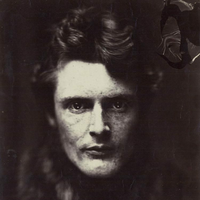Giacinta
Giacinta sat upon the garden wall
Among the autumn lilies, and let fall
Their crimson petals on her lover’s head,
And laughed because her little hands were red.
She was the fairest child of Italy,
And it was well the lilies thus should die.
But Giulio shuddered when she made him kiss
The stains away in her pride’s wantonness
And held them up between him and the sun
That he might see the red blood flame and run
In the long finger—clefts from root to tip,
And still she pressed them closer to his lip,
And still she laughed. But Giulio looked at her
And it was half in love and half in fear.
And, when she saw him tremble, childishly
She laid both hands in his, and with a sigh
Told him to pity them. And he in vain
Hid them in his and would have hid his pain,
And tried to speak but could not for the weight
Upon his breast. And so the lovers sat
In a hard silence, while Giacinta’s laugh
Rang in his ears like the discordant half
Of some fair carol from a tavern flung,
She watching him above, the flowers among,
First with her smile and then with a hurt pride
Kindling to wrath. And 'Fool’ at last she cried,
‘You think because this hand of mine is white
And smooth to touch and wise in love’s delight
It had not dared to dabble in such red,
The blood—of these dead flowers—for dead is dead;
And you sit dumb and tremble and turn pale
Because I laugh to see the lilies fall.
Why not laugh with me, since you have the heart
To say you love me in my tragic part?
Think you that blood can make a hand less white,
Or all the ink of heaven blot out to—night
The innocent stars, or kisses steal away
The sweetness of red lips, or memory
Drive laughter from the world? The moon grows wan
And wastes and fades and shrivels to a span,
Yet men watch on beyond the hills at even,
And lo there is a new moon in the heaven!
Look in my eyes. Are they less pure and keen
For all the passion which their depths have seen?
Is there a stain upon my brows? My cheek
Is it less fair for what it dares not speak?
Oh, Simon’s blood was not so red a thing
But it has left my face its colouring.
Or think you drops from any vein of his
Could make my fingers blush as deep as this?’
And Giulio’s courage sickened when he heard
Giacinta suddenly speak out this word.
She was the fairest child of Italy,
But Giulio thought it had been well to die.
‘yet, had it left me pale,’ she said, ‘I know
It had been all as one to Giulio
To love a pale face. You will love me yet
Though I have told you how my hands are wet,
And when I hold them out to you to kiss
Your lips will burn to drink away the lees.
Oh, lovers, lovers! Wherefore will you preach,
When women laugh at what you dare to teach
Of truth and honour? Is there one of you,
One honourable friend, one bosom true,
That will not sell his virtue for a kiss
Though the mouth that gave it were a nest of lies,
And will not soothe his soul with the deceit
Which swears a rose is not a whit less sweet
Because an angry bee was in its cell
An hour ago?—Oh, lovers reason well!
So take the flower and deign forget the bee.
But Giulio, do not bid me stop and see
How beautiful a thing your virtue is,
And do not cry to the unheeding skies
’Did I not love her?' See, I hate your love
More than I hate yourself.' And Giulio strove
With his weak heart and could not bear the pain.
And so he took Giacinta’s hand again,
Without more word. But she in softened mood
Looked on the boy her beauty had subdued,
And said 'Poor Giulio! I have never shown
Much hate to you, and this you needs must own,
Only beware of loving me. ’Tis strange
That men are wise, yet cannot take the range
Of a silly woman’s mind, but still devise
Of their fool’s love, as if it were the prize
For which a woman might forget the cost
Of her undoing and a world well lost,
And cannot see that love is only this,
A pretty word to whisper in a kiss,
As when one says, 'God bless you’ with ‘Good—night.’
But Giulio, who would ever suffer it
A man should always have the name of God
Upon his lips?' Her lover only trod
The lilies with his heel. At last he sighed,
‘And Simon loved you, and for this he died?’
They sat till dusk upon the garden wall,
And she began to sing a madrigal
About the falling leaves and quite forgot
To answer him. But Giulio heeded not
Because he held her hand. He could not flee.
She was the fairest child of Italy.

